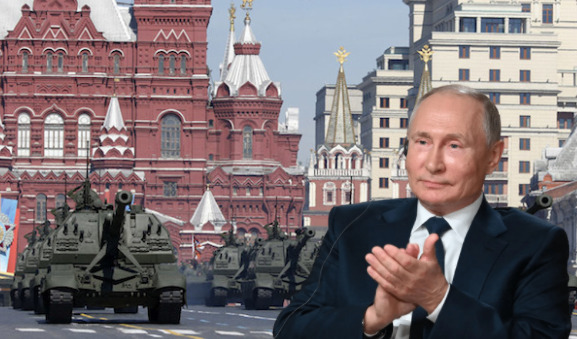The US and the west for a long time have propagated the fall of Russia as a superpower on the world stage. President Joe Biden declared in July that Russia was “sitting on top of an economy with nuclear weapons and oil wells and nothing else.” Since the end of the Cold War, US politicians have stated that Russia’s days as a true global power are numbered. The western commentators have for long jumped on this bandwagon and foretold the demise of Russia. However, the geopolitical successes, the increasing importance in the face of the energy crisis in Europe, the consolidation of its control over areas of its historical influence.
In the last decade, Russia successfully intervened in Syria’s civil war, meddled in the 2016 US presidential election, and injected itself into Venezuela’s political crisis and Libya’s civil war. While the west continues to latch on to its interpretation of Russian decline, Moscow under the leadership of Vladimir Putin is consolidating and expanding the Russian sphere of influence.
Russia’s successes under Putin and grand plans
Putin wants to make his country a superpower all over again. And amongst the biggest of Putin’s exploits have been his ability to reinvigorate Russian influence in Central Asia, a region of Moscow‘s privileged sphere of influence that had once warmed up completely to the United States of America. With the abrupt US withdrawal from Afghanistan, Putin is now taking complete control of the Central Asian region and all of a sudden he has wrested Central Asia back from the US and turned it into a Russian backyard.
Russian President Vladimir Putin is not stuck in Soviet times. He realises that the true potential of Russia cannot be realised under stringent Communist rule. To do so, he must revive Russian glory – the way it was done in the past. And Turkey figures prominently in this scheme. For now, Ankara might think that despite some differences, Russia is its friend. However, if Putin is to resuscitate imperial Russian glory, he will have to inevitably go against the interests of Turkey.
As reported by TFI recently, within Russia, there is a renewed vigour with which important figures are staking claim of Turkey’s eastern provinces. Recently, in a subtle but severe message to Turkey, the editor-in-chief of the Russian state TV channel RT said Russia should annex eastern Turkey’s Mount Ağrı (Ararat) and Kars province.
Russia stands strong
Russia’s GDP of $1.5 trillion is equivalent to that of Italy or Texas, according to analysts. However, the $1.5 trillion figure is based on market exchange rates. When purchasing power parity is taken into account, the figure rises to $4.1 trillion, making Russia the second-largest economy in Europe and the sixth-largest in the world.
Russia produces energy at such a low cost that other exporting countries will feel the pinch long before Russia’s budget is strained. And the fact that Moscow is creating tactical establishments to keep the Arctic for itself, it will be the last country to run out of fossil fuel giving it ample time to transition smoothly.
Furthermore, Russia is the European Union’s primary energy provider, with its reliance growing over the last decade: the EU imports 41 per cent of its natural gas, 27 per cent of its oil, and 47 per cent of its solid fossil fuels from Russia. With the situation worsening, and Nord 2 pipeline becoming a reality, Russia will have even more monopoly over the European energy market.
Russian re-emergence as a Superpower
In terms of nuclear weapons technology, Russia remains the United States’ principal competitor. Aside from NATO, it also has Europe’s most powerful conventional military, which was reforged in 2008 after a period of military reforms and investments. Before 2014, the transition was generally neglected, which is why Russia’s military manoeuvres in Ukraine and, later, Syria surprised many commentators.
The Russian military is at its most ready, mobile, and technologically capable state in decades. China has been trying to play friends and leach on Russian military technology to outrank Moscow, but Putin has been sharp enough to predict these intentions and thus maintain a safe distance with Beijing.
From Eastern Europe, the Middle East and North Africa (MENA), to Central Asia, the Arctic, and the Far East, Russia has consolidated these regions as part of its area of interest. In addition to this, Putin has also moved into the geopolitics of the Indo-Pacific. In all aspects, Russia is influencing the activities and directions things go, the world over. Under Vladimir Putin, Russia has showcased enough instances to prove its re-emergence as a superpower.
